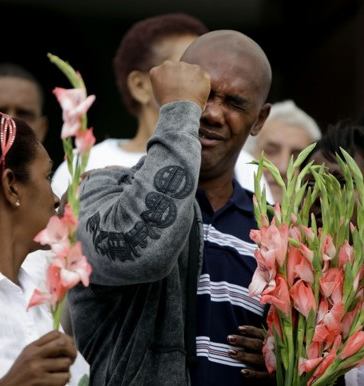The good news from Cuba is that– after years of being denied permission to travel abroad– the great dissident blogger Yoani Sanchez (Generation Y) has obtained a new passport which will allow her to visit other countries.
By her own account Sanchez has on some 20 occasions been rejected for the much-detested exit visa that for decades was required of all islanders seeking to go abroad. Analysts have called such controls arbitrary and humiliating, though authorities long insisted they were necessary to prevent brain drain.
That requirement ended Jan. 14 when a new law took effect scrapping the permit known as the “white card,” which Cuba routinely denied to those it considers “counterrevolutionaries” in the pay of foreign interests and bent on undermining the communist government.
The less-good news is that another prominent Cuba dissident is being denied permission to travel outside the country.

[T]he case of Angel Moya, who was locked up for years in connection with his political activities, indicates that Cuba intends to exercise a legal clause by which it retains the right to restrict some citizens’ right to travel.
Moya, one of 75 other anti-government activists imprisoned in a 2003 crackdown on dissent, said he went to file paperwork and the $50 application fee to request a passport, but a clerk turned him down.
“She told me, after consulting a database, that I was restricted and it couldn’t be processed for reasons of public interest,” Moya told The Associated Press.
Moya said the office clerk showed him her computer screen and the file did not contain a specific reason why he was not allowed to apply for the travel document. But the travel law contains language reserving the right to withhold passports for reasons of national interest and for people with pending legal cases, and he’s sure that’s affecting his situation.
Let me dare to suggest that one of the “reasons of national interest” might be that Moya happens to be an Afro-Cuban. And, because “revolutionary” Cuba likes to present itself as a model of racial progress and equality, the prospect of a black Cuban speaking out in foreign countries against government repression would indeed be a reason to keep him at home.
“I’m happy and sad: On one hand I have my document to travel, but several friends like (Angel Moya) will not be allowed,” Yoani Sanchez wrote.
Government officials did not immediately respond to a request for comment. Havana usually avoids mentioning the dissidents at all except to accuse them of being traitorous “mercenaries.”